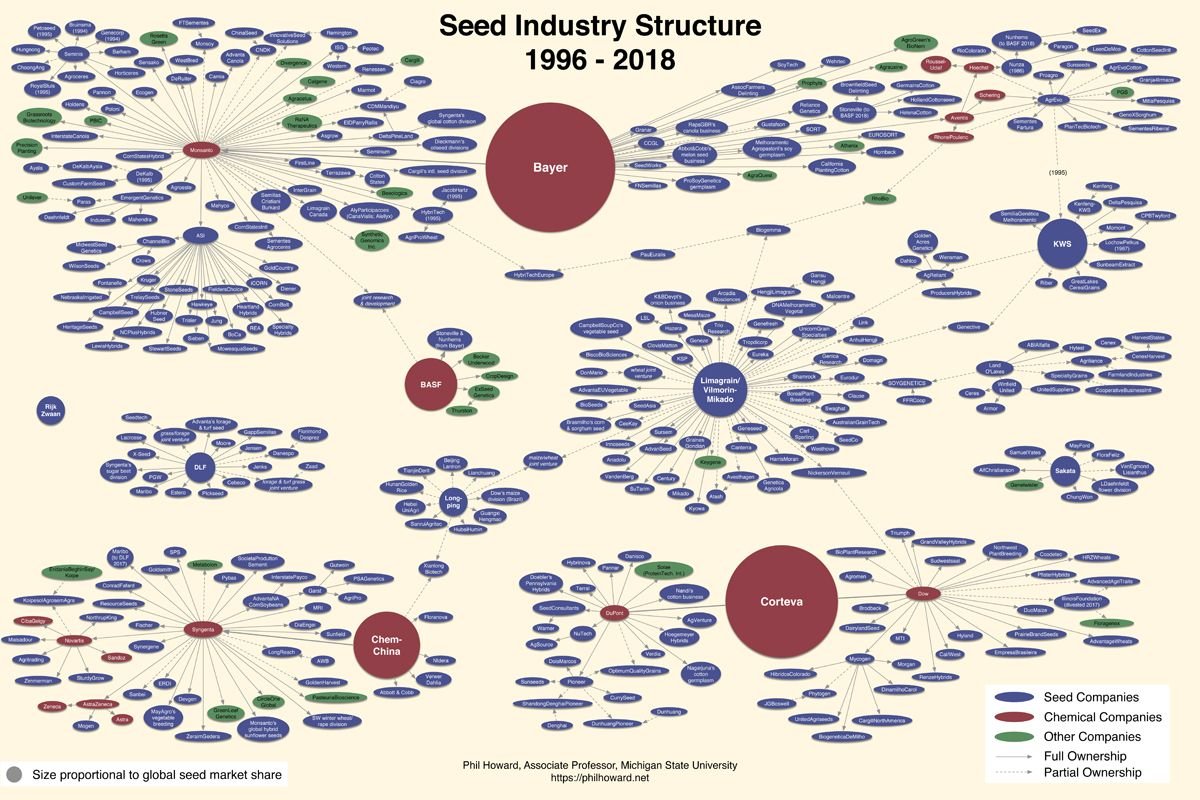Big Food: Understanding the System
It has become more commonplace to refer to a “Big Industry”, perhaps without truly understanding the reality of what this means. "Big X" is a common nickname used to describe the increasingly common situation where a few corporates hold near-monopolistic control over significant areas of the economy. This relatively unchecked power allows for a few actors to heavily influence political decisions, shape the public narrative, and increase profits and control, in part via well-funded lobbying and media campaigns. “Big Industries” include Big Tech, Big Oil, Big Money (finance), Big Ag, Big Pharma, and of course, Big Food. Big Food has only become more consolidated over the past decades, with 10 major players controlling the vast majority of the brands available in American supermarkets.
Big Food directly and indirectly manipulates your food choice: from advertisements that guide diet culture and connect foods to emotions and memories, to lobbying of policymakers in relation to food labeling and quality standards. Unsurprisingly, the aim of Big Food corporations is not to promote healthy diets or the sustainability of the planet, but firmly set in the neoliberal capitalist system with goals of profit and power. In 2022, as food prices skyrocketed in response to global conflicts and climate crises and inflation rose around the world, “[t]he top 25 companies in the sector generated $1.5 trillion in revenue in the past year, while profits for the sector increased to more than $155 billion” (Forbes Global 2000).
Alongside the monopolization of packaged and processed food brands under umbrella mega-corporations, seeds—the foundation of life on Earth—are now owned, controlled, and modified by four corporations. The two charts above bear a striking resemblance—power and control over our food systems continues to be consolidated under a few mega-corporations known for social and environmental abuses and a pursuit of profit at the expense of resilience and well-being.
As a few players consolidate power over the seed and agro-chemical industry, farmers loose autonomy. The monopolization of the market directly results in higher prices and less choice for farmers. Additionally, monocropping and the increasing use and dependence on pesticides that are pushed within our industrial, corporate-led agriculture systems are linked to the destruction of natural ecosystems, soil health, and the health of farmers working in close proximity... while agro-chemical companies increase their power and profits. Some agro-chemicals that are banned in the U.S. are still legal to sell abroad. Small-scale farmers around the world are disempowered by this system, as it increases baseline costs and lowers market prices for key crops. Vandana Shiva, a well-known environmental and food sovereignty activist in India, is one of the many scholars who have raised alarm bells over this reality: “𝗖𝗼𝗻𝘁𝗿𝗼𝗹 𝗼𝘃𝗲𝗿 𝘀𝗲𝗲𝗱 𝗺𝗲𝗮𝗻𝘀 𝗰𝗼𝗻𝘁𝗿𝗼𝗹 𝗼𝘃𝗲𝗿 𝗼𝘂𝗿 𝗹𝗶𝘃𝗲𝘀, 𝗼𝘂𝗿 𝗳𝗼𝗼𝗱 𝗮𝗻𝗱 𝗼𝘂𝗿 𝗳𝗿𝗲𝗲𝗱𝗼𝗺.”
Even though the power of Big Food is alarming, we can resist as consumers. Buying local and seasonal produce, or directly from farmers, is a great place to start. Making more of your own foods, and thus decreasing the amount of processed products that you purchase, is another step towards greater food sovereignty in your own home. These habits were commonplace just a few generations ago, but now require more concentrated effort. The beautiful thing is that making these changes not only takes economic power away from big corporations, but also benefits your health and the health of the environment, and strengthens local community. It’s a win–win.


